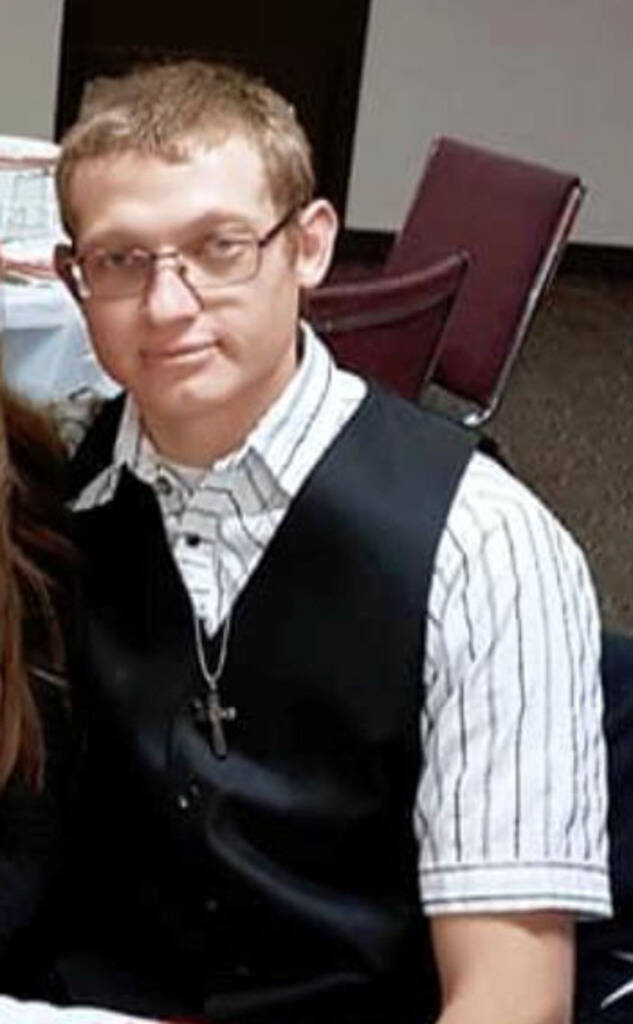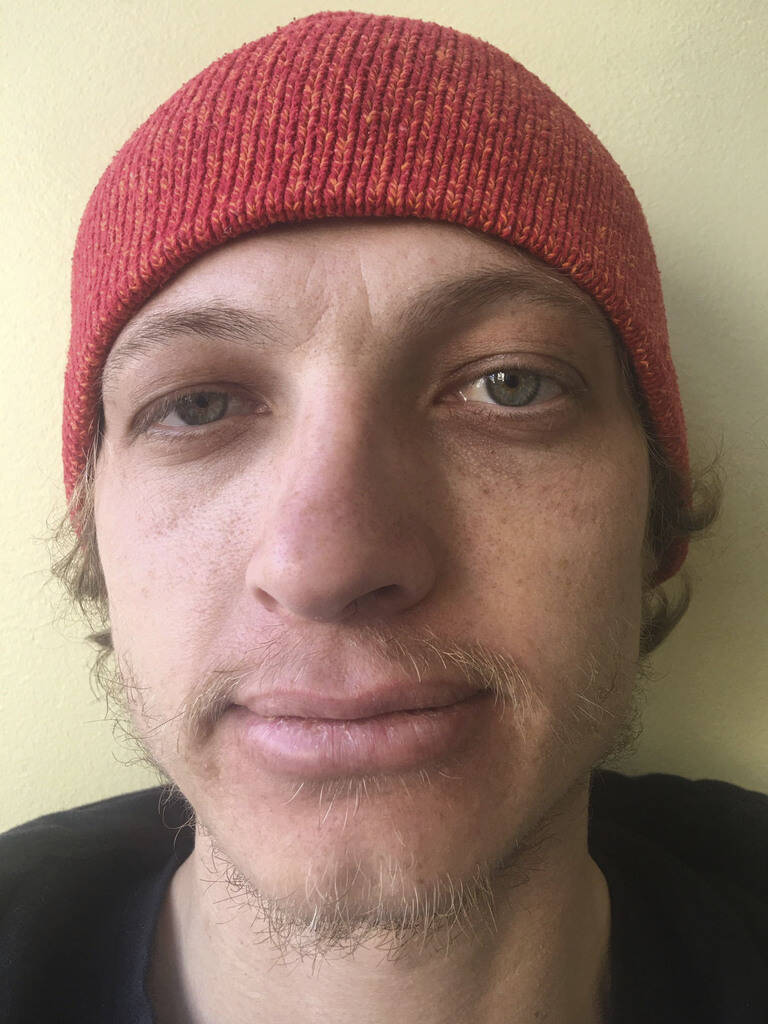‘Degree of deception is off the charts’
Woman convicted in slaying of Bolivian immigrant
Advertisement
Read this article for free:
or
Already have an account? Log in here »
To continue reading, please subscribe:
Monthly Digital Subscription
$19 $0 for the first 4 weeks*
- Enjoy unlimited reading on winnipegfreepress.com
- Read the E-Edition, our digital replica newspaper
- Access News Break, our award-winning app
- Play interactive puzzles
*No charge for four weeks then billed as $19 plus GST every four weeks. Offer only available to new and qualified returning subscribers. Cancel any time.
Read unlimited articles for free today:
or
Already have an account? Log in here »
Hey there, time traveller!
This article was published 26/07/2022 (884 days ago), so information in it may no longer be current.
Chelsea O’Hanley claimed she had no idea Gerhard Reimer-Wiebe’s battered body was in the trunk of her SUV when she drove three people — now convicted in his murder — to Portage la Prairie in June 2020.
But that was just another in a constellation of lies she “concocted” in an effort to hide her involvement in the grisly killing, a judge said Wednesday.
“The degree of deception is off the charts,” said Queen’s Bench Justice Ken Champagne, who convicted the 26-year-old woman of second-degree murder, accessory to murder after the fact, and indignity to human remains.
Reimer-Wiebe’s widow, Anna, sat stoically on one side of the crowded court gallery, and O’Hanley on the other, each appearing to listen intently as Champagne read from his 102-page decision. O’Hanley shook her head from side to side as Champagne found her guilty on all charges.
SUPPLIED Clockwise from top left: Jonathan Bradley Narvey, Bobby Lynn Hall, Chelsea O’Hanley and Kyle Sinkovits.
Reimer-Wiebe, 27, was tortured for days in a Winnipeg home before he was killed. His body was transported to Portage la Prairie where his killers burned and buried it on the edge of a field.
Twenty-seven-year-old Jonathan Narvey, a drug dealer and O’Hanley’s then-boyfriend, and Kyle Sinkovits, 31, pleaded guilty to second-degree murder and were sentenced earlier this summer to life in prison with no chance of parole for 20 years. Co-accused Bobbi-Lynn Hall, 28, pleaded guilty to accessory to murder after the fact and was sentenced earlier this year to four years in prison.
SUPPLIED Gerhard Reimer-Wiebe, 27, was a recent immigrant from Bolivia.
Reimer-Wiebe, a recent immigrant from Bolivia, had fallen into drug addiction when he fled his Steinbach-area home for inner-city Winnipeg in the spring of 2020.
Court heard evidence Reimer-Wiebe was present at the same Alfred Street home where the four accused lived or were staying when Hall told Sinkovits (her boyfriend) and Narvey (a close friend) she had awakened in bed with Reimer-Wiebe and believed he had sexually assaulted her.
Narvey and Sinkovits tortured Reimer-Wiebe for days, inflicting an array of brutal injuries, including stab wounds to his back and major skull trauma. They cut off three of his fingers.
O’Hanley testified she had seen the men attack Reimer-Wiebe at the home of Hall’s mother on Selkirk Avenue days before the killing, but she claimed she had no knowledge of an attack on him at the Alfred Avenue home, telling court Narvey told her Reimer-Wiebe “took off.” She said she never went to the basement of the house, where court heard Narvey and Sinkovits tortured Reimer-Wiebe.
Friends and family members described O’Hanley as a “sweet, kind, genuine person” with two university degrees and a goal of becoming a teacher. They say she changed after she started seeing Narvey.
SUPPLIED Gerhard Reimer-Wiebe had fallen into drug addiction when he fled his Steinbach-area home for inner-city Winnipeg in the spring of 2020.
O’Hanley testified she lived in fear of Narvey, who was physically abusive and controlling and threatened to harm her or her family on multiple occasions. A doctor who testified on behalf of the defence told court she showed signs of suffering from domestic abuse and post-traumatic stress disorder.
Champagne said Narvey was clearly threatening, abusive and violent, but the extent of his abuse was impossible to determine given O’Hanley “embellished, exaggerated and outright lied” to police and the court.
“I do not hesitate to find she is a skillful and clever liar who provides some elements of truth in her deceptive and dishonest story,” he said.
Photos found on O’Hanley’s cellphone showed Narvey standing on Reimer-Wiebe’s body, which was on tarps in the kitchen of the house.
O’Hanley denied knowledge of the pictures, testifying Narvey restricted her access to the phone and used it “99.9 per cent of the time.”
Champagne said text messages O’Hanley sent to friends and work around the time of the killing show she clearly lied about Narvey’s level of access.
In wiretap recordings of phone conversations between O’Hanley and Narvey when Narvey was in custody for a subsequent home invasion, Narvey asked O’Hanley why the pictures hadn’t been deleted from her phone.
“There is no doubt O’Hanley knows exactly what Narvey is speaking of when he mentions the photographs,” Champagne said. “The totality of the evidence proves beyond a reasonable doubt that O’Hanley is the photographer.”
O’Hanley knew Narvey and Sinkovits had tortured Reimer-Wiebe and was present when they prepared to wrap his body in a tarp in the kitchen and “finish him off,” Champagne said.
“An uninvolved person, even an abused spouse, would not stumble onto the scene and remain to take photographs; they would run from the house screaming,” he said. “She knew what was going to happen and used her cellphone to capture it. Her actions encouraged Narvey to continue the brutal mutilation of Gerhard.”
O’Hanley testified that after she and the three co-accused arrived in Portage, she didn’t know Narvey and Sinkovits were disposing of Reimer-Wiebe’s remains. She said Narvey told her to stay in the vehicle and said “what (she) didn’t know wouldn’t hurt her.”
“An uninvolved person, even an abused spouse, would not stumble onto the scene and remain to take photographs; they would run from the house screaming.”–Queen’s Bench Justice Ken Champagne
Court heard prior to setting Reimer-Wiebe’s remains on fire, the group borrowed a jerrycan and drove to a gas bar to fill it up. O’Hanley claimed they were only there to pick up snacks. But if that were so, why did security video show O’Hanley parking next to the fuel pump, Champagne said.
“She knew she was there for gas and she knew the reason they needed it,” Champagne said.
O’Hanley remained free on bail during her trial. Champagne ordered her into custody Wednesday, pending sentencing, ruling she is a flight risk.
O’Hanley will be sentenced at a later date. The minimum sentence for second-degree murder is life in prison with no chance of parole for at least 10 years.
dean.pritchard@freepress.mb.ca

Dean Pritchard
Courts reporter
Someone once said a journalist is just a reporter in a good suit. Dean Pritchard doesn’t own a good suit. But he knows a good lawsuit.
Our newsroom depends on a growing audience of readers to power our journalism. If you are not a paid reader, please consider becoming a subscriber.
Our newsroom depends on its audience of readers to power our journalism. Thank you for your support.



